|
I take lessons and play in several musical groups. Only one group needs serious practice of specific pieces outside of rehearsals. However, all the groups are populated with active and retired professional musicians, like me, who expect that I will show up ready to play. Furthermore, the teacher I work with expects me to show up prepared. Some weeks I'm given a dozen pieces to learn. This is how I manage. I divide the pieces into two piles. The first pile consists of the pieces I can sightread. I never practice these. The second pile is divided into two further piles: the easy pile which consists of pieces that have passages that need the once over and the difficult pile that causes panic. I quickly dispatch the easy pile. In preparation for tackling the difficult pieces I repeatably listen to professional recordings of the pieces to have a clear aural understanding of the part. I then tackle the difficult stuff as follows.
Because I've prepared properly my heart is not conflicted. I'm at peace with whatever happens because I have done all that is humanly possible. However, sometimes, life gets in the way, and I will show up less than prepared. Then the banked musical skills of half a century kick in. You may not have half a century of experience to lean into, but as time goes by you will. If I can help you learn to practice, call me. David Revised 2024
0 Comments
Learning to count rhythm is a primary skill in music reading. It will involve counting aloud, clapping hands, playing with a metronome and more. Below are examples of my preparations and practice strategies for a recent concert with the Metropolitan Silver Band in Toronto where I'm the drummer. As you can see, even trained musicians count and mark things up. David
How to use Play Along Tracks
Play along tracks are band recordings of jazz, blues, and pop songs minus the melody. You supply the melody when playing along. Here are some tips to get the most from the experience.
Apps for playing along. YouTube: (126) misty play along - YouTube iReal Pro: iReal Pro - Practice Made Perfect Band in the box: PG Music - Band-in-a-Box.com (bandinabox.com) If I can help you further, call me. David Seven steps to learning a new piece of piano music.
If I can help you further, call me. David What should a Royal Conservatory of Music piano student practice each week according to Shakespear?2/20/2023 A Royal Conservatory piano student's goal,
Is mastering the art of playing with control. Begin with scales and arpeggios in hand, To warm up fingers and help you understand. Next, pieces chosen with purpose and care, Played often, so the music's easy to bear. Technical studies such as Hanon or Czerny, Can help you play with dexterity so cleanly. Sight-reading and ear training are quite a treat, To build essential skills and make progress sweet. Choose challenging repertoire to extend, Your capabilities, and become a true friend. Lastly, review and refine what you've learned, So your piano skills will be well-earned. A Royal Conservatory piano student's way, Is to practice each week, with dedication and play. William. How should I practice piano?
To practice piano effectively, here are some steps you can follow:
Have fun: Finally, make sure to enjoy the process! Playing the piano should be a source of joy and fulfillment, not stress and frustration. ---------------------------- Not bad. However, recording yourself is missing. David Tonight, in concert band we will sightreading 8 to 10 new pieces of music that arrived last night and this morning. I am following this protocol to be ready.
1. I immediately printed the music. 2. I created a new YouTube playlist of the pieces. 3. I studied the scores while listening to the musical recordings. I made note of the tricky bits. I did not necessarily listen all the way through, just enough to get a sense of the part. 4. I put aside all the music I can easily sightread. It will be read for the first time tonight. 5. I have made note of the tricky bits in the three remaining pieces: one measure in one piece, one section in another, and then put the third on the music rack for immediate attention later this morning. 6. I wrote in the stickings on the two easier pieces in the trickly passages. 7. I am preparing to practice the one tricky piece with my pencil, eraser, recording, drumkit, music ready at hand. I will let you know how it turns out tonight. David What to practice, how to practice, how much to practice, when to practice can be sources of anxiety to students preparing for a piano exam. To succeed one must spend time on each area of study.
Try dividing up your time on the piano bench as indicated in the drawing; give equal time to each area. Now if you are like me, your attention span is long as a puppy's. No worries, jump around. But keep track of your time in each area.
Good luck David Why do we practice slow to go fast? We all play like we practice. If we practice carefully, thoughtfully, and methodically our odds of playing expressively, confidently, and at a steady tempo go up significantly. Let's consider one aspect of this: Slow practice. 1. Slow allows us to consider our motions at the piano. 2. Slow allows us to play steadier while learning. Remember playing quickly and stumbling about may make our stumbling get embedded in our playing. 3. Speeding up bit by bit, as our skills increase, the scales, chords, arpeggios, etudes, and pieces is a good strategy. 4. To play fast eventually we will have to practice fast. It is good practice to have our musical moves together before sprinting through the music. David revised August 2022 Sight-reading tips
Short story As a teenager I had poor practicing habits. I had no focus or commitment to any task except sightreading which I found fun and easy. I loved spending hours reading from my mother's piano books. Therefore, it is no coincidence that I've spent the last 45 years making a living as a sight-reader. First as a professional pianist and later as a teacher and drummer. Eventually though, I did get my practice habits straightened out and got down to business. David Revised August 2022 Some days and weeks are going to be difficult. Life will get in the way. Here are some suggestions I gave one adult beginner to help relieve his practice room blues.
If I can help you, call me. David Revised August 2022 One of my adult students was asking tonight for some help planning his practice time. He is preparing for his Grade 8 piano exam. He is an engineer, a spreadsheet kind of guy. I'm sympathetic. Here is what we discussed. Warmup with sight reading. Use a metronome! Get into the zone. Now start practicing Technique with a 2-minute timer. Switch activities every 2 minutes = 15 minutes
Practice one short section to perfection =15 minutes Theory =10 minutes Ear Training = 10 minutes Review completed piece or pieces 10 minutes BOOM! one hour of accomplishment This may work for you. David Revised August 2022
Please excuse this short story in which I’m the hero. I’m learning to play the jazz xylophone. I started at Christmas 2021. I practice every day with my 100-year-old textbook, a stack of tunes that I want to learn, my video recorder and oodles of desire. Here is the process I usually follow.
The video below is an unedited version. Notice it took just a brief period of time to accomplish something because I didn’t try to do everything at once. David Revised August 2022 Musicians have a number of tactics to memorise their music for exams.
If I can help you memorise your music, call me. David. I found it extremely helpful over the holidays to practice with a video camera recording my progress or lack thereof. I played for 5 minutes and watched for 5 minutes. The camera was positioned so that the keyboard of the xylophone was visible. I was able to see and hear what was working and what was not and then adjust my next repetition accordingly. Video helped me to close the gap between how I thought I sounded and how I actually sounded. If I can help you, call me. David Revised August 2022 The above is the final take in ten takes over 20 minutes.
These three are the most neglected aspects of music study. Theory Skilled musicians see harmonic, rythmic, and structural patterns in the music, beginners see a string of notes. The purpose of theory study is to help us to see and understand these patterns and their significance, which over time, leads to artistry. As a former teacher put it, "understanding what you are seeing makes everything easier." How you think about the drum set, what you have heard, and what you understand about the musical past of the instrument determine how you play the instrument musically. Ed Soph, master teacher History
Different eras of music sound different. When you understand the broad outline of music history, you will have informed knowledge on the interpretation of the piece. Ear Training Ear training is a wide set of skills:
Some folks have it easier here than others, but I can confidently say that as a kid I started with a tin-ear, but over time, with practice I developed a high degree of skill. I can help you too. Call me. David Revised August 2022 Practice time is precious because of the myriad demands for our attention. Wasting it by messing around is counterproductive to our success. One illuminating solution, for more productive practice, is to know how we spend our time practicing. Do we carefully plan out our activities or do we run willy-nilly in all directions? It has been claimed that 90% of young music students play a piece through once, not even stopping to correct mistakes. Here is a way to find out where you stand. At your next practice record yourself on your phone. Later in the day listen back and ask yourself: 1. How did I spend my time? 2. How focused and methodical was I? 3. How did I sound? 4. What did I accomplish? 5. Did I meet my preplanned goal? For more on practice habits, as observed in the wild, check this out: (Http://www.escom.org/proceedings/ICMPC2000/Sun/McPherso.htm) If I can help you manage your time, call me. David Revised September 2022 Self-assessment is difficult because our minds play tricks on us. For more of the science of the dangers of self-assessment Google “Dunning-Kruger effect”. There are several tactics students can employ to overcome or at least minimize the “Dunning-Kruger effect”.
David Revised September 2022
These ten activities will simplify the process of learning a new piece of music.
David Revised September 2022 I practice piano and drums daily, except Sundays when I rest. Recently my student Barb asked me, "how do you practice?" Here is my answer.
Have Fun. David Story Revised October 2022 Here are some of the things I’m considering in a post-pandemic world. It may be helpful for your situation too.
Best regards, David Revised October 2022 Preplanning shortens the time needed to "learn" a piece of music. I start, if I can, by listening to several professional performances. Some of the marks on the score reflect what I heard in a particular performance and other marks are a result of my own deliberations. As I revise this blog, I regret that I didn't mark down what was what and from whom.
Planning an interpretation
David Revised October 2022 My top five tips for practicing any musical instrument:
Theory
If you would like help, call me. David Revised March 2023 4 hours of practice: No Grinding. Top 5 tips for practicing any musical instrument
Playing
General and Jazz Specific Theory
If you would like some help, call me. David |
You've got to learn your instrument. Then, you practice, practice, practice. And then, when you finally get up there on the bandstand, forget all that and just wail. AuthorI'm a professional pianist and music educator in West Toronto Ontario. I'm also a devoted percussionist and drum teacher. Categories
All
|
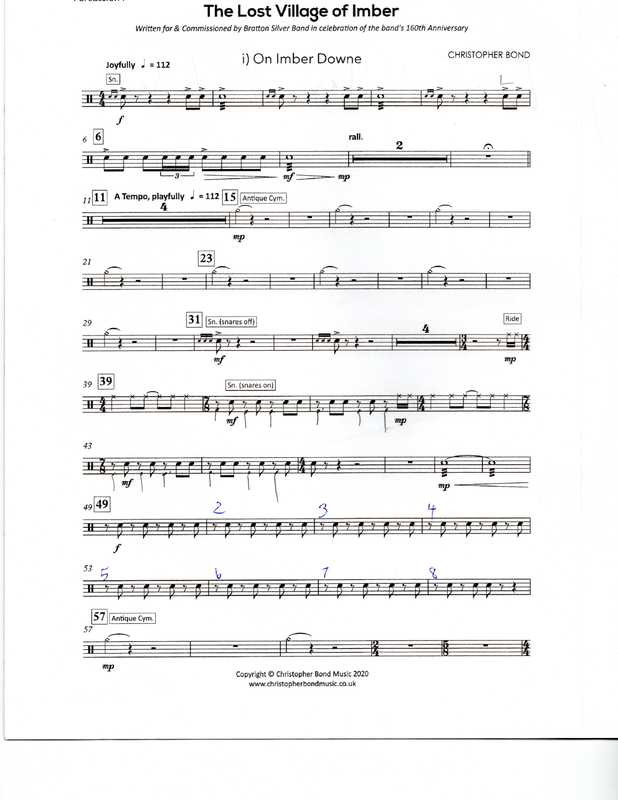
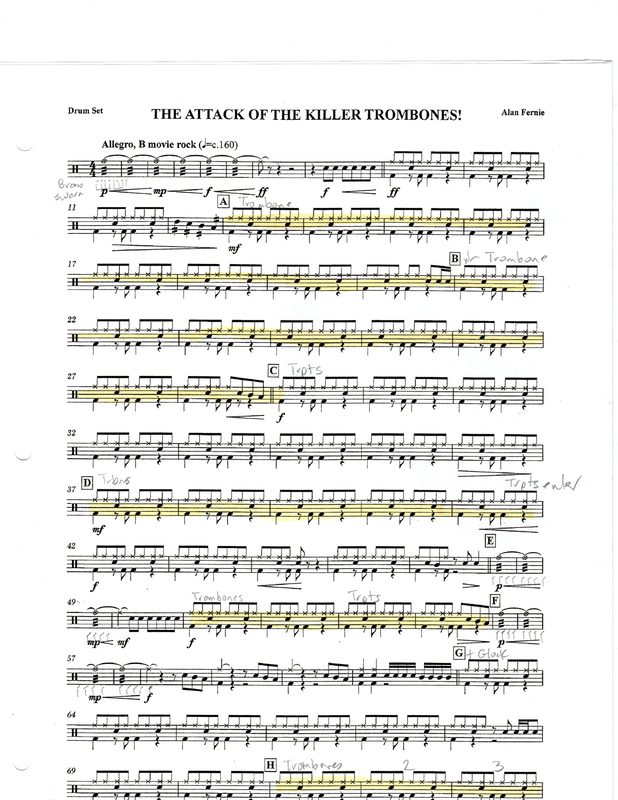
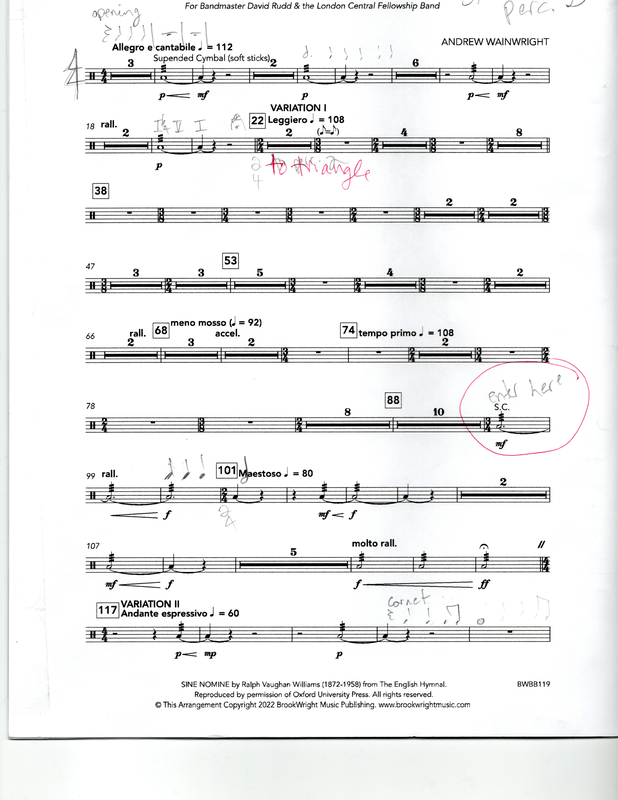
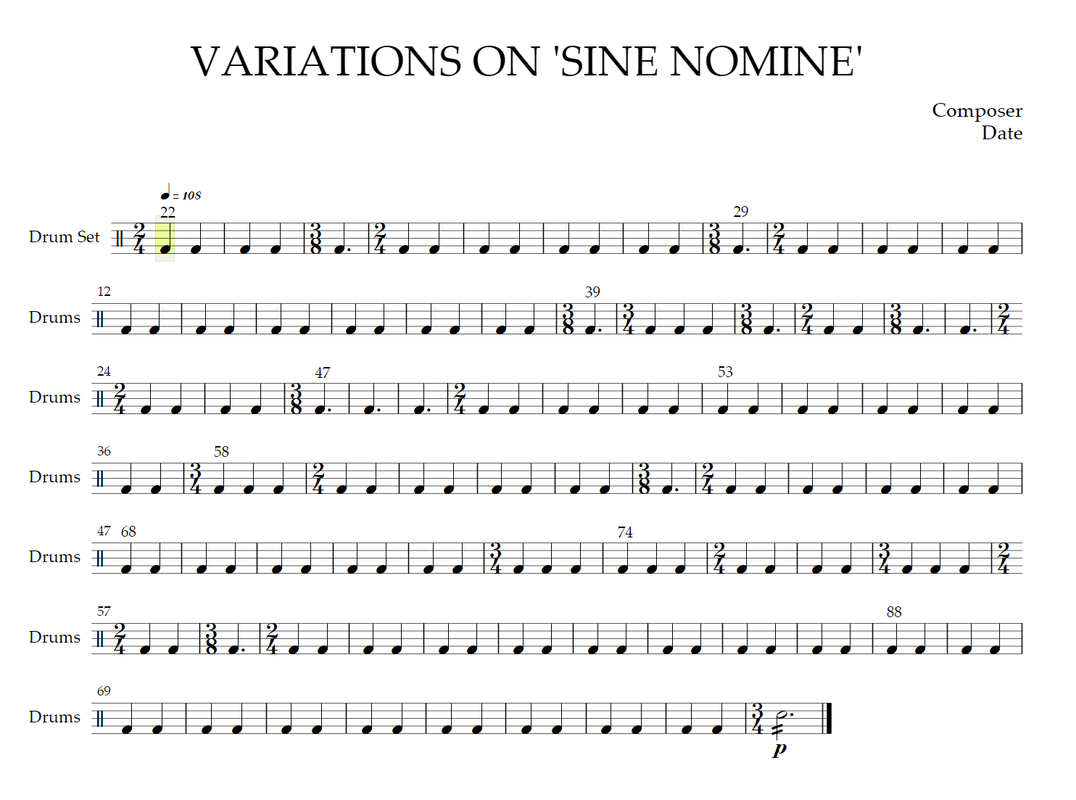
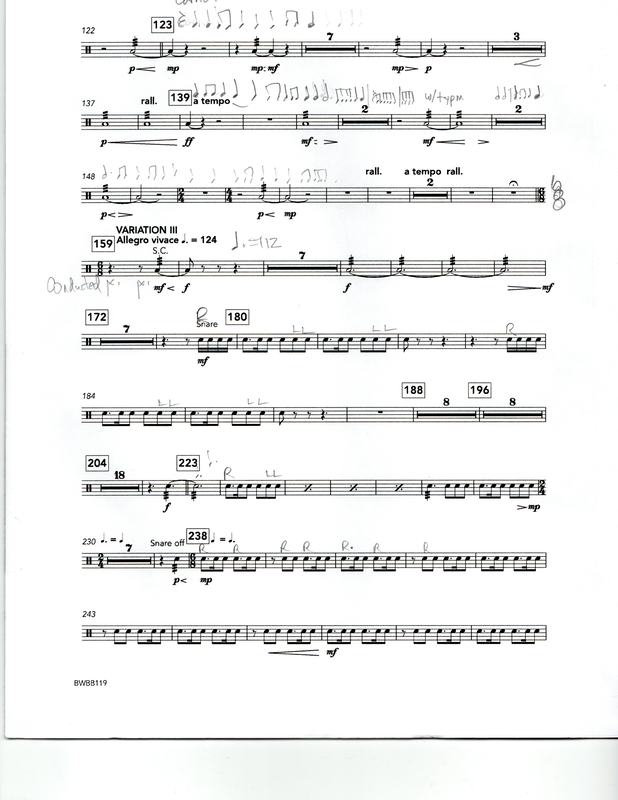
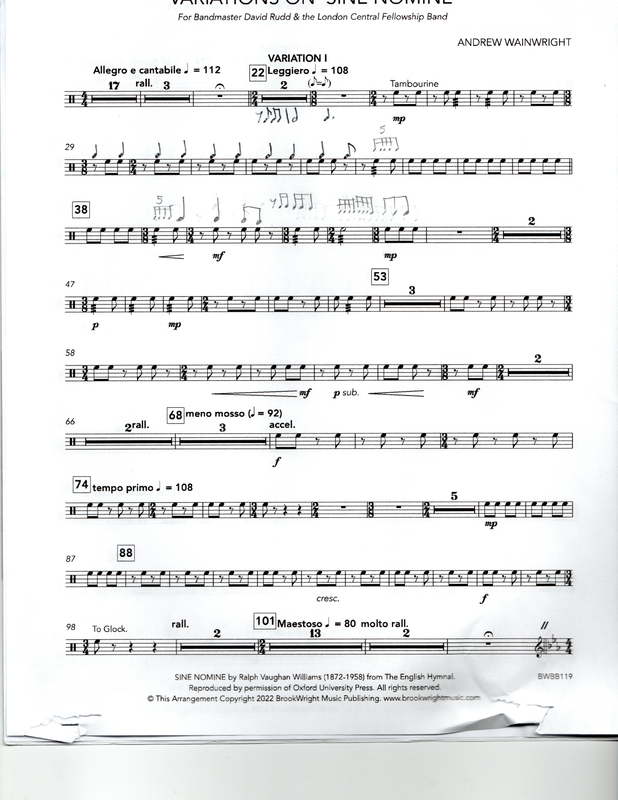
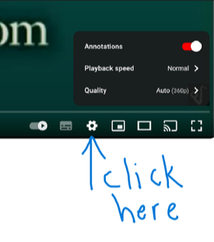

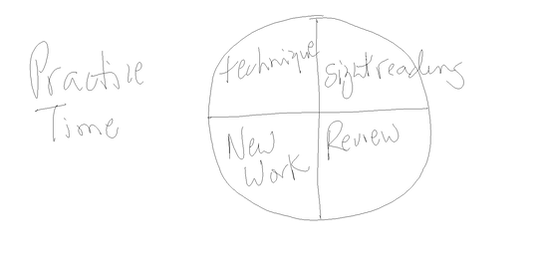
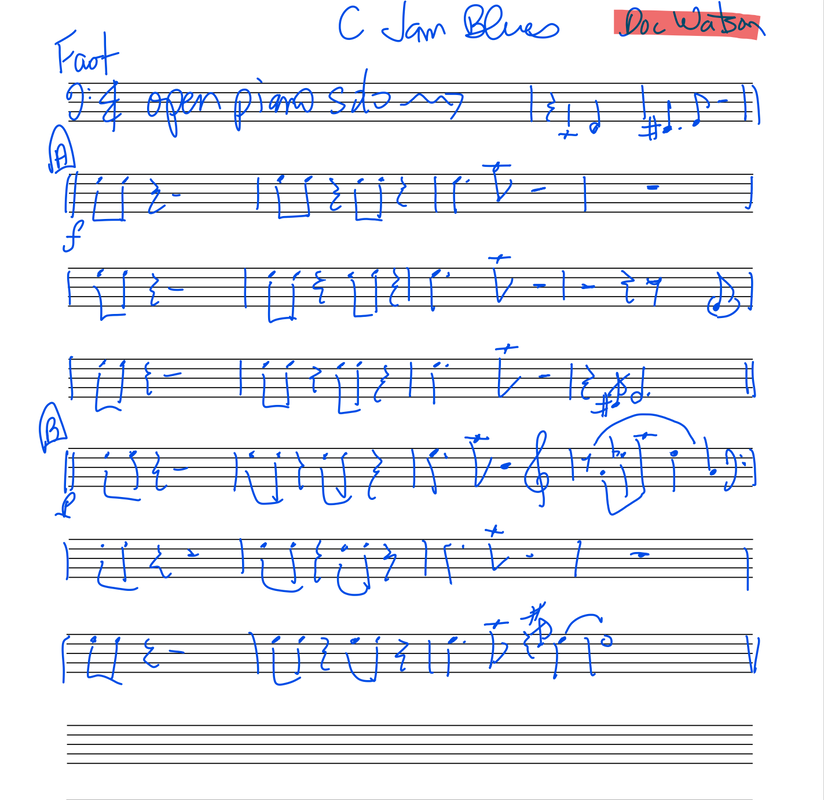
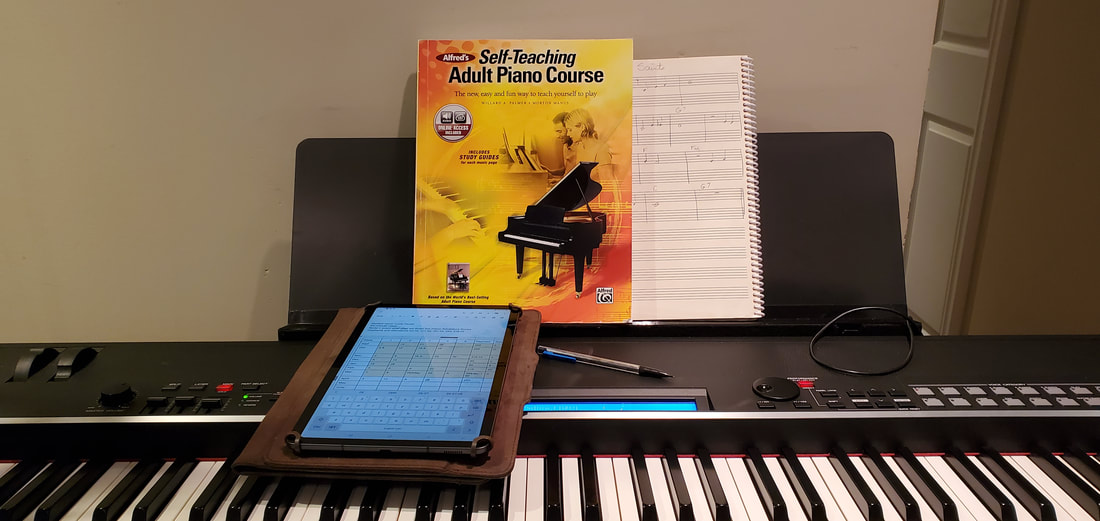
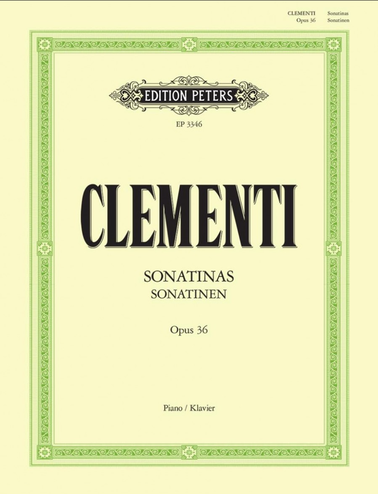
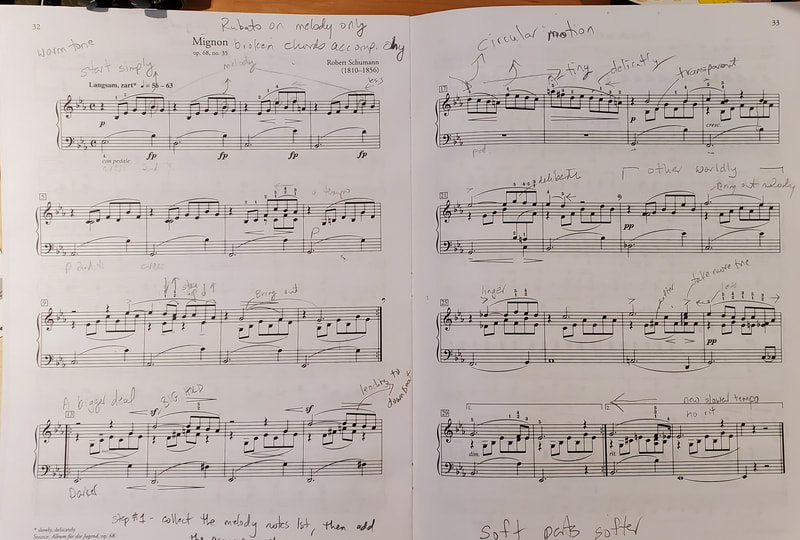
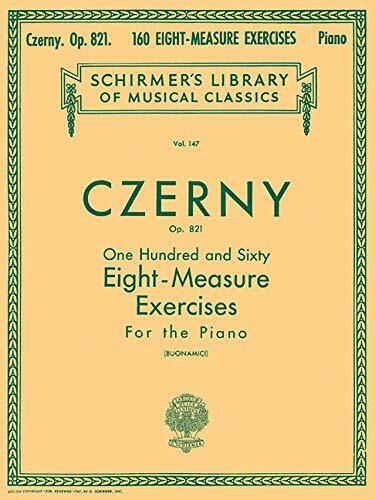
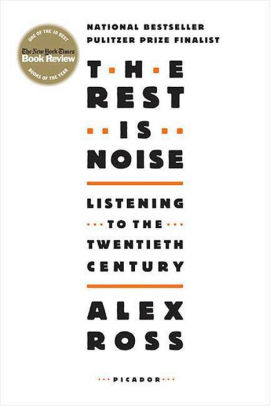
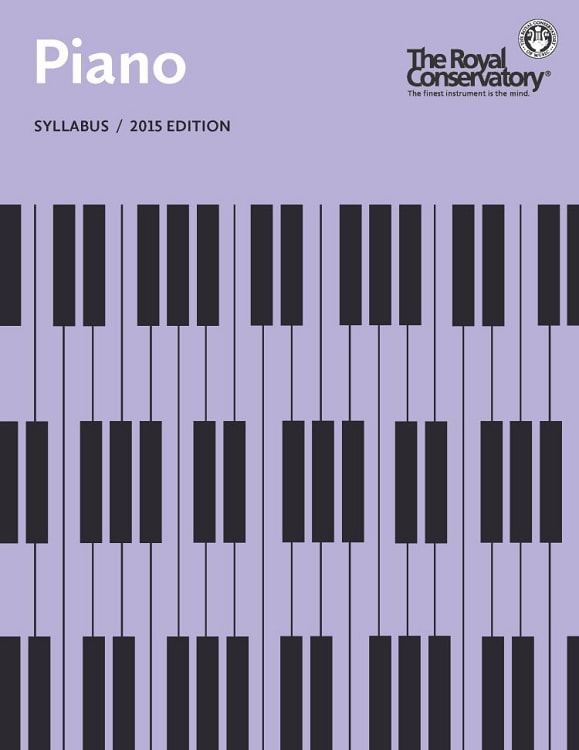
 RSS Feed
RSS Feed